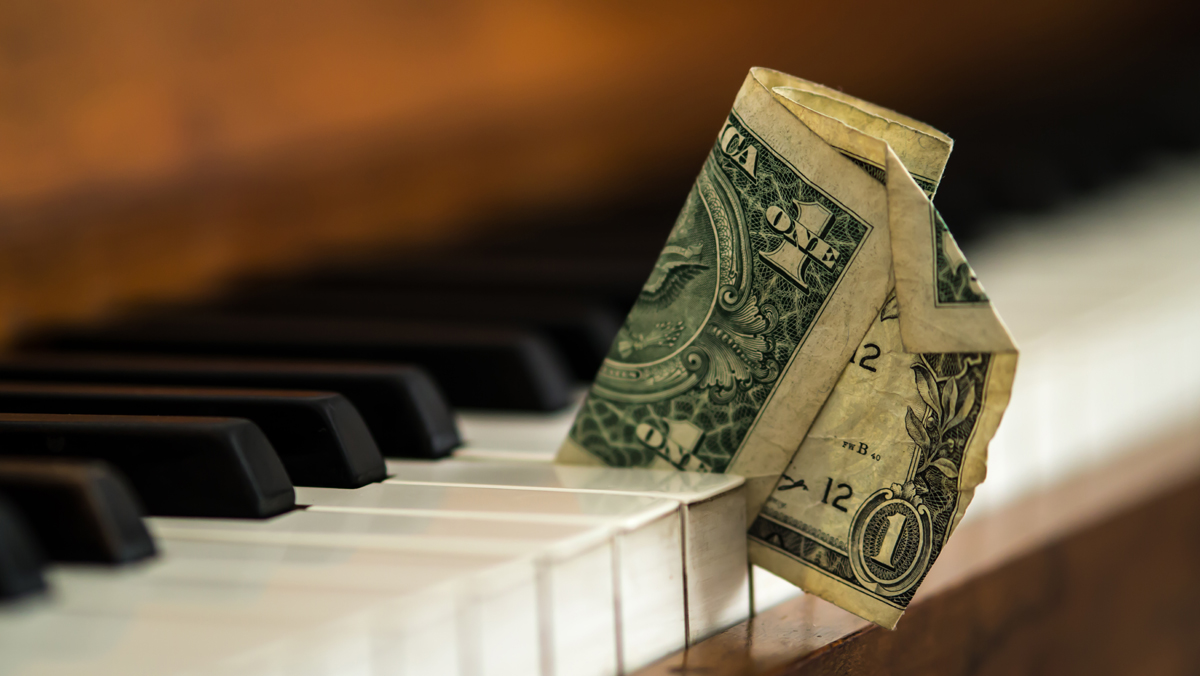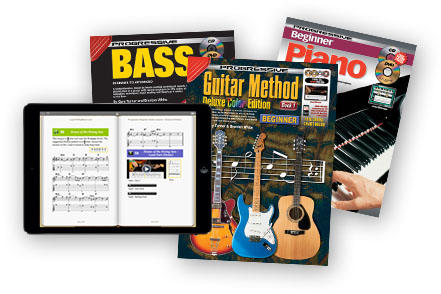What is the definition of a Professional Musician?
In this post, author Wilfried Geck has compiled a list of observations he has made over the years as a practicing musician, about some fundamental differences professionals make in their approach to music. Some of the points here might be just common sense, others might be a great insight that will help you in your journey as a practicing & professional musician. We hope you find this list valuable; and please feel free to post your own additions in the comments section below.
10 Habits to Help You Become a Better Pro
1. Pros always try to improve
A common trait among professionals (not only in the music field), is that they always try to get better a what they do. They take their craft very seriously, and they never stop working at it no matter how long they’ve been playing.
2. Setting specific goals
Professional musicians know what they want to achieve and how to achieve those goals. They have a clear vision of what they want and how to get there. It helps if you write down your goals and a plan of action to achieve them. This could be as simple as writing “Memorize all dorian scale patterns in all keys by the end of this month.” As a plan of action, you could write “Purchase scale book/learn a new key every other day”.
3. Practice, practice, practice.
It is very easy for a music student in college to spend 8 to 10 hours every day practicing and composing. Aside from attending class (and maybe working a part time job on the side), it’s the only thing you do. After graduation, however, it gets infinitely more difficult to maintain a steady practice routine. In the “real world”, there are many distractions getting in the way. The professional mindset is that your music has the highest priority in your life. You should set aside a certain time every day for practicing, and schedule all other chores around that time. How much time is up to you, but it should only be used for practicing. Do your other daily chores some other time.
4. Professionals take their gear seriously
Think of your instruments as professional tools. A carpenter takes care of his tools, because his livelihood depends on them. The same goes for musicians. Don’t compromise on gear. Buy the best you can afford. A good instrument can also improve your playing, and it can sometimes inspire new creative ideas. Also, keep your gear always in good shape and ready to play. Nothing says “amateur hour” louder than you plugging your guitar in at a show and no sound coming out of the amp, because you haven’t replaced the batteries of your active pickups. Don’t neglect to protect your gear. I know, gig bags are light and convenient, but imagine taking your expensive instrument onboard an airplane. When the boarding agent inevitably asks you to check your instrument rather than carrying it into the cabin, the one question will be: do you want to have it buried under 50 suitcases in a gig bag or in a $500 flight case?
5. Tuning
Playing an out-of-tune instrument is probably the most recognizable trait of an amateur. There is only one thing that is worse: playing out-of-tune and not hearing it! One out-of-tune musician in a band can ruin the entire band’s performance, and it is one of the quickest ways to ruin your reputation as a professional musician. Which brings me to my next point:
6. Don’t tune on stage
Pros tune their instruments before the performance. If their instrument goes out of tune during the show, they will have a spare instrument to play while a technician tunes the primary instrument backstage. If that is not an option for you, you can install a foot operated mute switch, so you can at least make your tuning corrections quietly and discreetly. This is also directly related to the next point:
7. No noodling between songs
A great performance is often ruined by the musicians playing around on their instruments between the songs. It is a sign of nervousness, and nervousness, again, is a result of bad preparation. Pros only play their part in a song. In between the songs, they are quiet.
8. Taking care of your body
Just like the instrument should be treated like a professional tool, your body operates this tool, and it is an integral part of your musical performance. Making sure your muscles are properly warmed up before a performance helps you avoid injury. That includes your finger and hand muscles. You’d be surprised how many students drop out of music colleges and conservatories every year due to carpal tunnel syndrome or tendonitis. Those are injuries that could be avoided, and sadly, in most cases, they are real career killers. Also, be aware of what you put in your body. Eat healthy and avoid drugs and alcohol. It is an illusion that you perform better when you are high.
9. Getting along with your colleagues
Let’s face it. Nobody likes a diva. You could be the best musician in the world, but if you don’t get along with others, you won’t be very busy in your musical career. Respect others and be likable in every interaction. Sometimes a person you worked with ten years previously will remember you and recommend you for a gig.
10. General professional conduct
Never underestimate punctuality and reliability. If you are always late to gigs and rehearsals, pretty soon there won’t be any gigs for you to be late to. Worse than being late is being unreliable. Don’t take another job after you already committed to one, even if the other job pays significantly more. You absolutely don’t want to earn a reputation of being only loyal to the highest bidder.
This list of “habits” might vary for everyone. They are a collection of Wilfried’s own observations during a musical career spanning almost 30 years. Some of these he had to learn the hard way, others he learned from musician friends over the years, and again others are just observations of other musicians and their performances and conduct on the job. We encourage you to add your own observations in the comments section below.
– Written by Wilfried Geck
– Continue learning with Learn To Play Music at LearnToPlayMusic.com






























Leave A Comment
You must be logged in to post a comment.